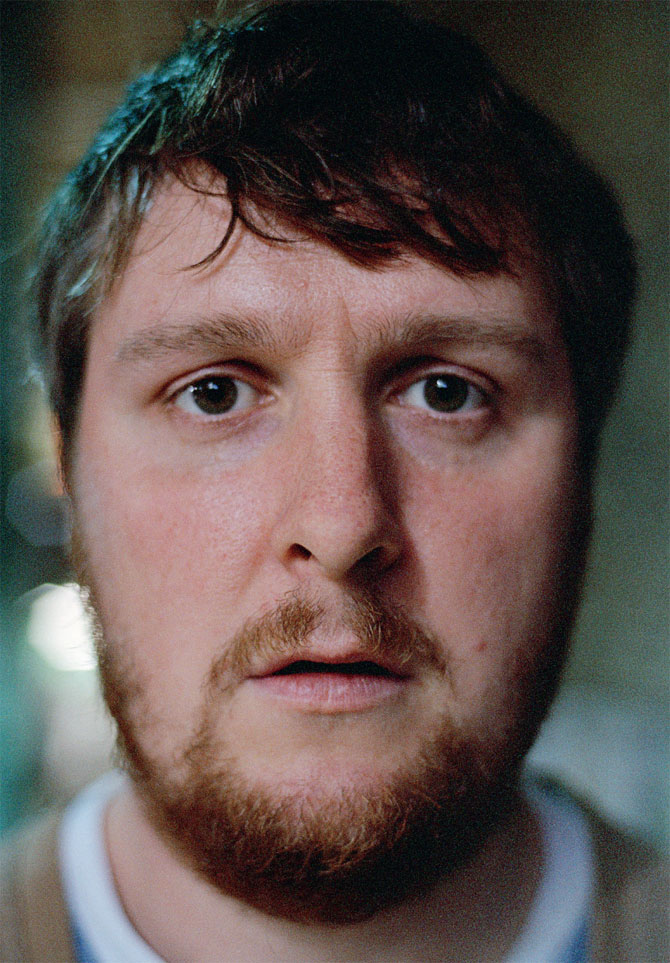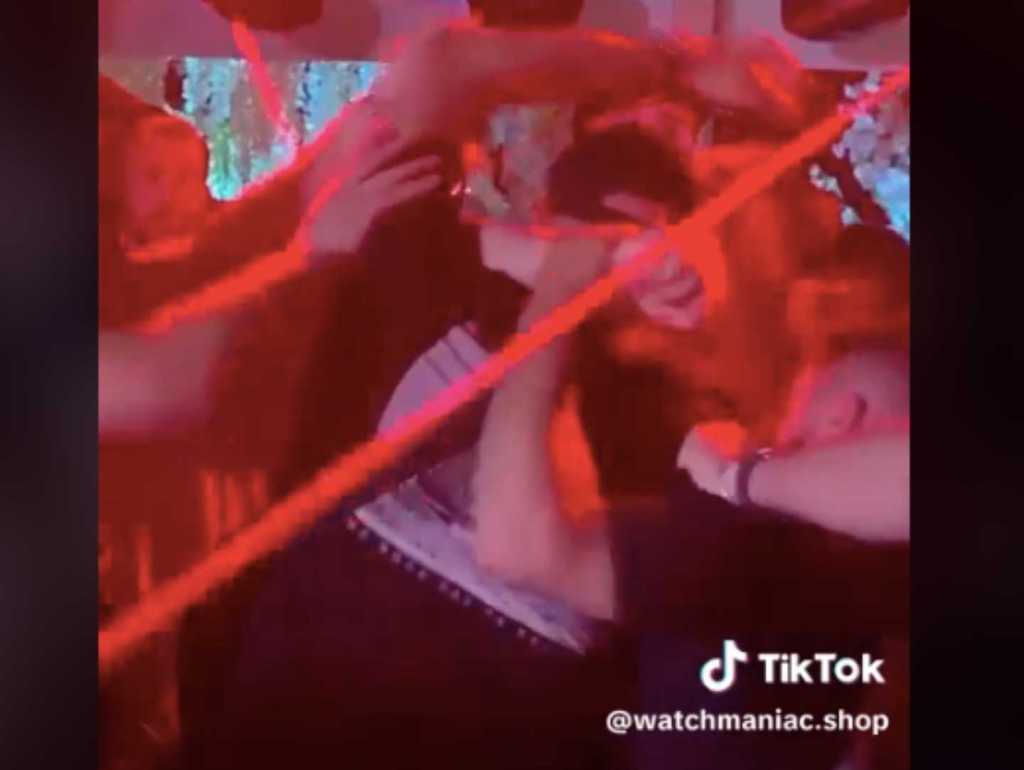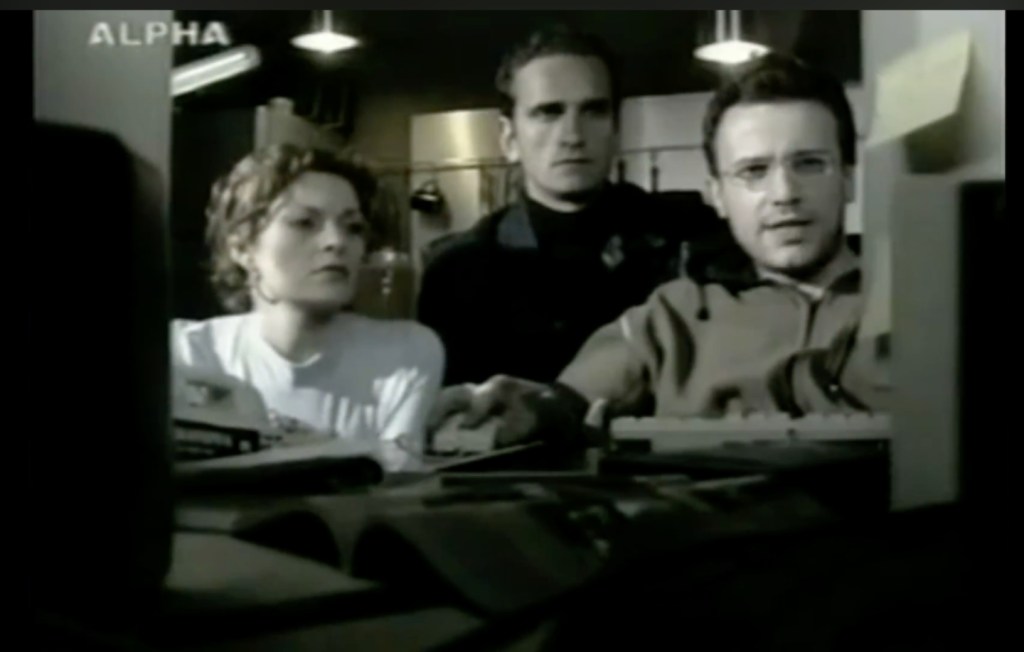WORDS BY JAIMIE HODGSON
PHOTO BY JONNIE CRAIG

Explaining what Tim Key does can be tricky. In a nutshell, the 34-year-old does an offbeat mix of poetry, drama and physical comedy—not always at the same time, but sometimes. Equally troublesome is trying to convey what makes him worthy of heaps more attention than he currently receives. The adjectives that tend to get thrown his way—progressive, inventive, quirky—would make any self-respecting comic squirm, while Key’s onstage persona is a parody of what an alternative British stand-up should look like in 2010: a geography teacher in the throes of a nervous breakdown.
Last year, Key won the Edinburgh comedy award (formerly the Perrier award) for his terrific one-man show The Slutcracker, which finished its run at London’s Soho Theatre in March. Former winners include Daniel Kitson, Steve Coogan and The League of Gentlemen, so Key is in good company.
He’s no stranger to television, having appeared as the resident poet on Charlie Brooker’s Screenwipe and Newswipe programmes, and developed several shows with Armando Iannucci. Key also took part in the BBC’s goofy science panel game We Need Answers and the sketch series Cowards.
Now, despite having little interest in music or the music industry, he is releasing a comedy album on Angular Records called Tim Key. With a String Quartet. On a Boat. It’s the third in a series of independent vanity projects—the other two are books—helmed by his Invisible Dot management, which he has released as exercises in total creative control.
Key also spent a formative period as a member of Cambridge University’s Footlights drama club. Over the years, Footlights has produced a veritable who’s who of British comedy, from Peter Cook and John Cleese to Stephen Fry and Sacha Baron Cohen. Yet Key is the only member of the club in its history to have never actually attended the university. This is what we talked about when we met in a café in Camden.
Vice: So how did you manage to get into Footlights without being a Cambridge student?
Tim Key: I snuck in. I had finished university in Sheffield and had gone back home to Cambridge to apply for jobs. I knew I’d be there for a few months and I hadn’t done any acting or drama while I was at university because I’d been focusing on finishing my degree—I ended up getting a first in Russian. I wanted to start auditioning for things, but felt like amateur dramatics sounded like something from the olden days. My dad did amateur dramatics, so I thought I’d try a student thing.
Had you done any acting before that?
Yes, at school I’d done drama GCSE.
So that made you an expert?
Oh yeah, I was pretty much a pro. I had the stagecraft, I could project. I did an audition for a local production of Bouncers by John Godber and an audition for a Footlights pantomime by Alex Horne. I got both parts, but I was also working at an NTL call centre at the time. It was a bit like The Secret Of My Success with Michael J. Fox. I would be lying to everyone on the phone all day, then cycling very fast to lots of different places. There basically weren’t enough hours in the day to do all three things. The only one that was essential was the NTL call centre, because I needed money, so one of the others had to go. It was basically a toss-up between Bouncers, where I fancied the director, and the pantomime, where I fancied one of the actors. Luckily I think I preferred the actor, so I went for the pantomime.
So you kind of did things in reverse. Panto is usually where old actors and comics go to die, but you got your start there.
Yes, and it was a production of Treasure Island. I’d lived in Cambridge all my life and never actually seen a Footlights show. They do three big shows a year: the pantomime, the spring review, which is a sketch show, and the summer tour, which is what everyone usually associates with Footlights. The summer tour is the thing that Fry and Laurie were in with Tony Slattery and Emma Thompson. So I did the pantomime and on the back of that I did the spring review, and started to write a bit. By that time I’d got a bit of a taste for it and wanted to do the summer tour. So I auditioned for that show called Far Too Happy that they were doing in January 2001, and got the part.
But how did you get round the fact that you weren’t actually a Cambridge student?
I had to lie to do it. I had to tell them which college I was at and explain why I didn’t have a college university email. I told them it hadn’t come through. I still don’t know what that means. It just hadn’t come through. I think everyone else’s had come through. But mine hadn’t come through. So yes, I had to use phrases like, “It hasn’t come through,” and when the subject came round to discussing what I actually did, I had to say, “Yeah, it’s erm… Hey, does anyone want a drink?” Then leave. I kind of just avoided all conversations about it.
Did you show up for rehearsals going, “Oh God, just had a killer lecture”?
No, I tried not to showboat. I just avoided things. Avoided everything.
So what college did you say you were at? Weren’t you worried someone else in the group might be in the same one?
When pressed I would say that I went to Sidney Sussex College and my degree was a PhD focusing on the short stories of Nikolai Gogol. I have actually read his stories. I never wilfully chatted about Gogol with anyone or claimed to know the layout of Sidney Sussex. One time we had a rehearsal in Sidney Sussex, though. There was an assumption that I would know where a certain room was. They were wrong to assume this. But no one ever seemed to suspect, because when someone says that they are doing a degree, nine times out of ten they probably are.
And no one rumbled you?
No one ever suspected.
Never?
Well, eventually I told three people in December because I wanted to audition for the next thing but couldn’t because of my job. I’d just spent eight weeks with them, so I knew them. They found it pretty hilarious actually. Then I got a part in the main show and the director found out, because he researched the situation. I think he had suspicions. I was much older than everyone else there, I was 24. But we went for a pint and he said, “Look, I know you’re not a student. But we want you to do it. Just don’t tell anyone for the next six weeks.” So I didn’t. Then he asked me to out myself when we’d put together the script that we’d been writing and improvising. We’d had them all bound, and we had a dinner party to say, “Look we’ve got the scripts.” During that I had to announce my lie. I had to stand up and say, “Look, I’ve lied to you. Systematically and brazenly.” By and large they were fine with it.
I imagine if you were a more disposable member it would have been an issue.
I was far from a disposable member. I was crucial. I don’t know, I think it was probably quite a good way of doing it. I’m sure I was disposable. But everyone just thought it was quite audacious. It was just a small fence that I had to climb over for a bit.
I’ve heard you don’t have much interest in records or music in general. What made you choose to put out a record?
No, I have no interest in records at all. I don’t own any. I haven’t played my own record. It’s just not really my thing. I’m sure there are people controlling me like a puppet on this project. I think everyone thinks it’s pretty cool to put a vinyl record out, and they had to put something on it.
So how have you ended up doing an album for the same label that released records by These New Puritans and Klaxons?
I was quite into the idea. The way I tend to do things, especially with the Invisible Dot, is a bit like loss-leading Tourette’s, where I do things that I believe in completely but don’t get any money for. Hopefully that will die out, but I do find it quite liberating. That’s why I did the books. You have complete control over what you’re doing and they’re just little markers in my creative development. I’ll look at them when I’m a lot older and think, that’s quite cool that I published that. They don’t sell loads, but some people like them. If I’m writing a radio thing that’s narrative, it’s quite nice to stop for an hour and write a load of garbage that I can stick in a book. I do like the poems on the album. I have no idea who those bands are, though.
Is it like a greatest hits record?
Well, it is and it isn’t. I’ve tried not to put anything from The Slutcracker on there. There’s some stuff from the two books on there, and there’s some stuff from my first Edinburgh show on there. It’s just stuff that suited it, a lot of longer stuff. There’s some quite gandiose bits on there, just because of the way it is.
I heard you buried the record?
Yes, we did a launch at a record shop in Edinburgh, then rambled up to Arthur’s Seat and buried one. Because I believe that the record company tends to bury one copy of each of their records. That’s certainly what they said that they did. But maybe they were just trying to make me bury a record. We certainly did bury one. We buried it using the slot method, rather than the grave method.
What’s the slot method?
We dug a slot in the mountain, and posted it in.
So no unnecessary digging?
No, the digging was quite difficult. There was a lot of roots and stones, and rocks. It wasn’t just a case of shifting dirt. There were quite a lot of rocks acting as obstacles. So we had to dig them out first, and it didn’t go all the way in. There was about an inch sticking out. But we got it in as best we could.
So you didn’t actually bury it if there was an inch sticking out.
We buried a lot of it.
You buried the majority of it?
Yes, that is exactly what we did. We buried the majority of my record.
Tim Key. With a String Quartet. On a Boat. is out in November on Angular Records. For more, visit timkey.co.uk.
Living a Lie




